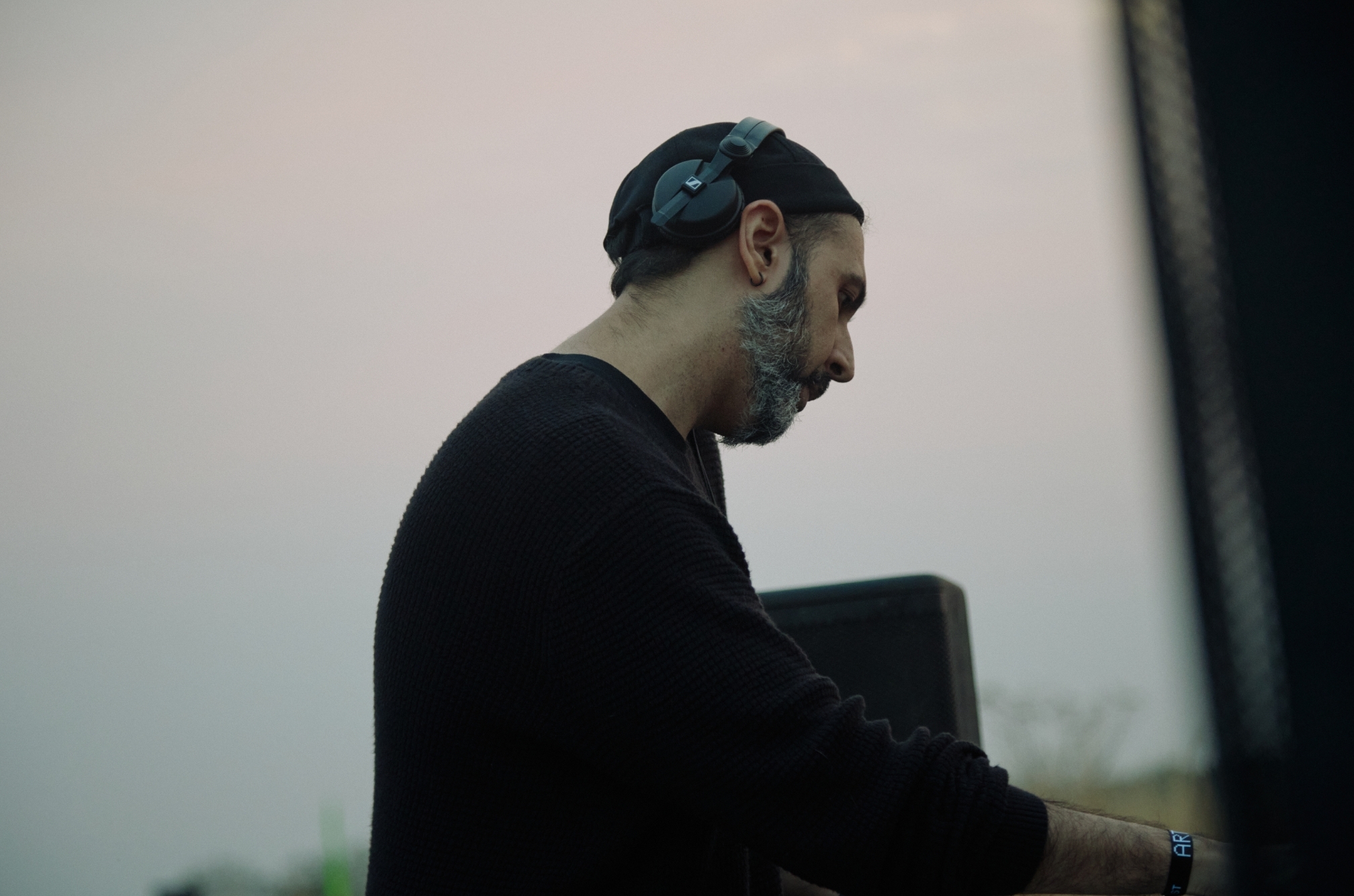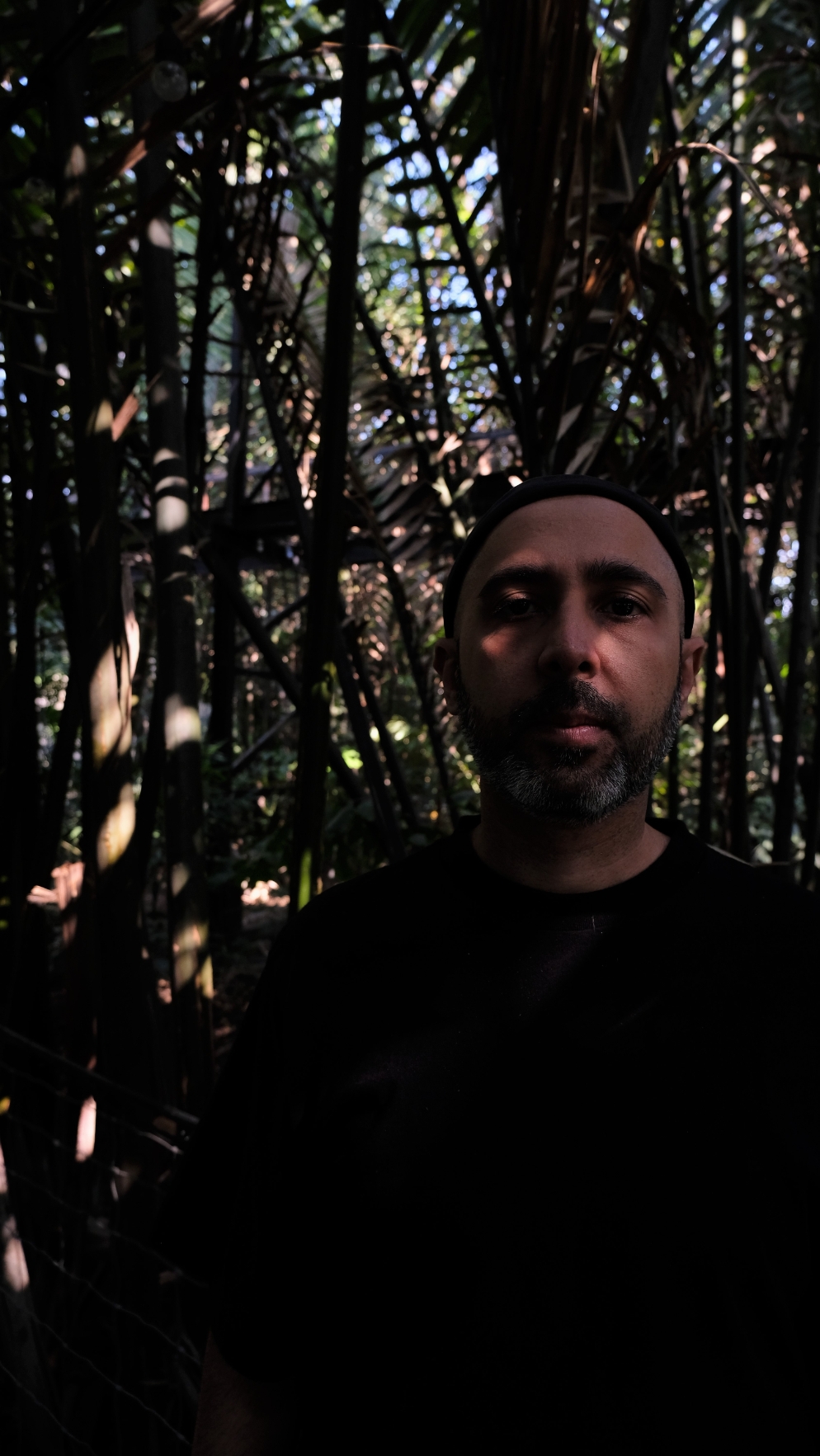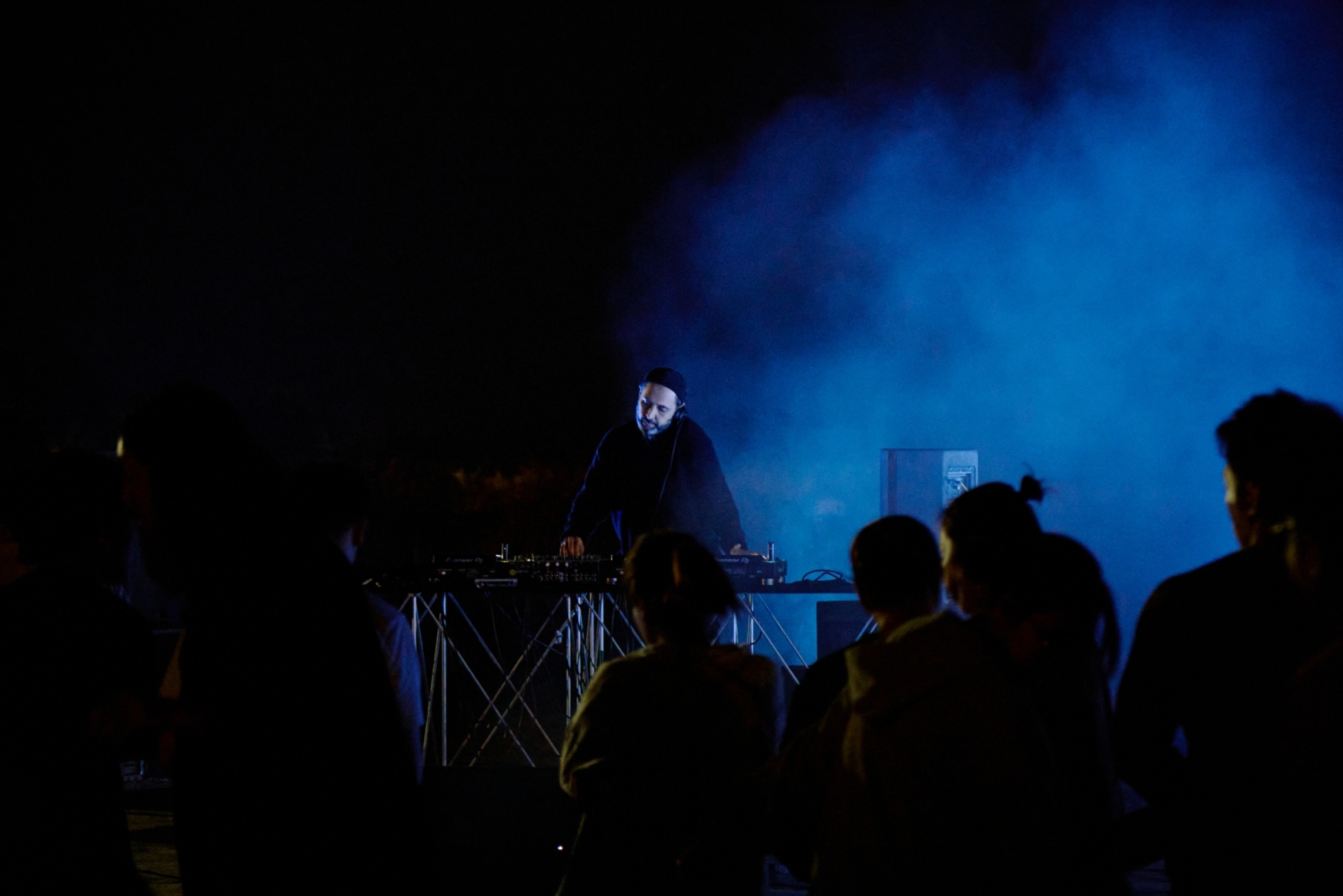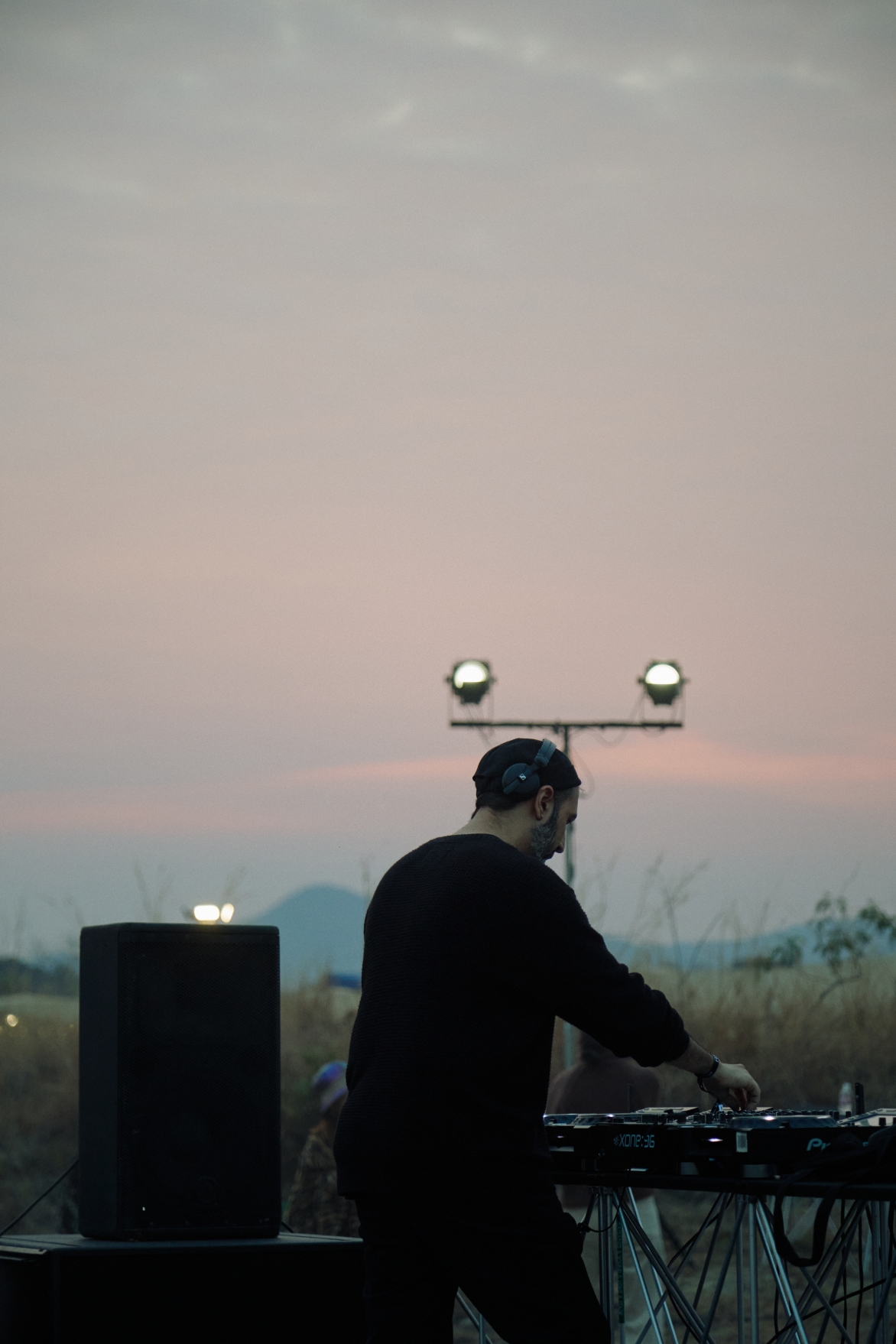 Interviews
Interviews
Collecting stories in imaginary worlds: in conversation with Sunju Hargun
The forward-thinking producer opens up on crafting emotional journeys through sound: “The fact that it could come from a human angle makes the narrative more relatable or even mysterious.”
Southeast Asia's electronic music scene is a vibrant mosaic, with artists like Sunju Hargun playing a pivotal role in its evolution. His soundscape traverses the boundaries of time and space, merging a rich tapestry of his Thai, Indian, and Japanese heritage.
With over fifteen years of a career, his journey has taken him from lush tropical jungles and dusty abandoned warehouses to pulsating, packed clubs and renowned festivals around the world.
However, one thing remains the same wherever he goes. Whether in iconic venues like Panorama Bar or at transformative festivals such as Horst, Organik, and Equation, Sunju’s sets are a testament to his deep-rooted connection to Asian cultures, infusing his music with a distinctive flavour that resonates globally and leaving audiences dazed in the best possible way.
In this Mixmag Asia exclusive exchange of insight, Sunju opens up about his approach to crafting narratives through music, emphasising the emotional depth and relatability that a well-told story can evoke.
Complementing the read are a number of his handpicked sets that offer a deeper understanding of his storytelling techniques. Through them, Sunju invites us into his creative cosmos, illustrating the profound interplay between music and narrative, and highlighting the timeless power of storytelling through sound.

First and foremost; can you elaborate on what storytelling means to you?
I love the idea of information that captures imaginary worlds or creative mental spaces, and the
fact that it could come from a human angle makes the narrative more relatable or even
mysterious. It gives us the freedom to explore and create connections together.
What's your research process like when curating tracks for a set?
When I discover an artist or band whose sound resonates with me, I dive into their work to learn
more about their craft. As a producer, I'm always seeking out new tools that can help me expand
my knowledge and incorporate new methods. While understanding the origins of music can be
helpful, I'm also okay with appreciating it for what it is, without tying it to any agenda.
Touching on an equally important aspect: preparation. How do you ensure cohesion and flow as you craft a narrative through your track selection?
The natural state of mind when it comes to preparation is knowing my music well enough to feel
where it could be played or how it would be heard. Then what follows is considering the length
of the set, the number of people, the positioning, and the hour of the night or day.
Space and
atmosphere are also helpful towards preparation. In particular, the off-location parties that
happen in nature are very much about considering this, and the preparation goes quite deep.
But it’s the perfect occasion to bring out those voodoo-type records for the forest creatures.

How do you feel your experience as a label owner, producer and DJ has influenced your ability to play listening/immersive sets?
I saw these experiences come together when I was invited to play for the Liminal Dreams crew
last year in Tokyo.
It was an intimate Sunday evening shared with a well-rested audience that
was very engaged. I felt that I had their attention, and it could be the perfect moment to pick out
some records that were floating out of Asia and beyond—a few noticeable crossovers, some of
my softer side productions, and the label’s forthcoming and past releases.
Oftentimes artists must choose between experimenting and keeping the audience engaged throughout a set—how do you strike a balance between the two?
If it puts people in a state of the unknown and doesn't work, then that's okay. But when it does,
those moments become a "memory", and that’s a great feeling.
I’ve always welcomed the elements of surprise, both for the audience and myself. But there is a time and place for that. It’s
also nice just to have a wild party rather than think too much—we have to pick our moments and
let the music play.
Read this next: Brothers gonna work it out: the accidental genius of Octave One
Having a certain level of confidence in your sound seems essential to deliver a distinct experience to the audience; can you share how you developed this mindset?
If we go back to the beginning, it didn’t happen until I was probably ten years into mixing.
Firstly,
I was born into a group of music heads in Shanghai who were a bit older than me and were
super nerds when it came to technicality and skill. At times, maybe a bit too much, but being
around them helped me make sense of it all and gave me a starting point.
Secondly, I would spend a chunk of my weekends as a teen in the dark corners of small
after-hour clubs, fully dedicated to experiencing marathon sets played by DJs from start to end.
Their personality and way of selecting records was so different from mine at the time—it was a
puzzle to my brain. The combination of energy and flow, all while embracing a bold, daring,
dark-power type of punk attitude, was just something else that’s hard to describe. The club was
pure and a holy temple that has brought me here today.

How does the ethos of your label, Siamese Twins, align with your approach to storytelling in your sets?
At heart, the label feels very personal and raw. From visual art to sound, stories are told in every
release, and the presentation of the artist's work is deeply considered and carefully thought out.
I strongly feel that by this point, we are not boxed into a certain category, and we are grateful to
be in such a position, and to have the freedom to follow our own path.
Read this next: Phuong-Dan in a nutshell: "I am enthusiastic about every musical expression"
Can you share a recent personal anecdote where you felt the transformative exchange of storytelling through your DJ sets, either for yourself or for your audience?
Well, it’s a kind of sense of mystery. I feel like I've been in those rare situations where it could
have felt like some sort of trance-like experience, but weirdly, it has a lot to do with the way I'm
probably feeling, to be honest. Sometimes when performing, I'm lost in my own spaceship that I
don’t really know what exists or is happening around me, and other times it feels more relaxed
and things just flow, I guess.
I shared a recent memory via Minimal Collective about an experience playing on the basement
floor at the (now closed) De School last year. It was a very trippy ride, paired with semi-jet lag,
and the room's energy brought something different out of me.
The Catch 428 at Wonderfruit Festival set was probably the one where I felt most clear about
the type of message I was trying to send.
Tell us, last but not least—where does one Sunju Hargun find inspiration?
It's hard to pinpoint one source. I could say things like "trees and jungles," but nature genuinely
calms me when I need to clear my head and escape from daily traffic.
I find interest in different
things—meeting people, travelling to new cities, or learning about cultures. It’s important for me
to engage with individuals who share similar mindsets or maybe like to operate in a world of
their own, and it doesn't necessarily have to be in music; otherwise, we’d all be talking about the
same things.
Amira Waworuntu is Mixmag Asia’s Managing Editor, follow her on Instagram.


